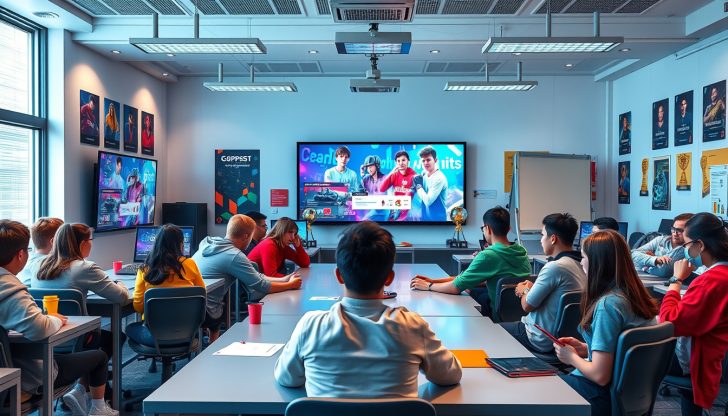Level Up Your Career: The Essential Guide to Esports Education and Professional Pathways

Esports has grown fast in recent years. It moved from a small hobby to a booming field in schools. Schools now see a chance to add esports in their lessons. This article shows what esports education means. It looks at how students gain skills and how one can join the field.
Understanding Esports Education
Esports education means to bring competitive gaming into school work. It builds strong ties between teamwork, strategy, leadership, and digital skills. Students who do not play usual sports find value in it. Most programs run games, give coaching, and sometimes include study classes. Some classes cover game rules, coding, and business work in gaming.

The Growth of Esports in Schools
Esports in schools grows fast, especially in grades K-12. Many schools now have teams that play games together. Research shows that these teams help students build skills. They also help raise grades and bring students together. One group, the High School Esports League, gives students a way to win scholarships. It also helps them join a team and work as one.
Benefits of Esports Education
Playing esports brings many good points:
-
Skill Development: Students learn to work as a team. They also learn to speak clearly and plan ahead. These skills help when it is time to work.
-
Academic Improvement: Some studies show that students in esports get better grades and work with more drive. The close teamwork in esports helps them focus in class.
-
Career Pathways: The gaming field creates many job paths. Students may work in game design, coding, event work, or broadcasting. Many colleges now include studies in esports and use prizes for top players.
-
Inclusivity and Engagement: Esports welcomes students from many backgrounds. It lets students work side by side as a team. It gives a place for students from groups that are less seen in tech.
Starting an Esports Program
Building an esports program in a school takes care and planning. Try these simple steps:
1. Secure Stakeholder Support
Talk with school leaders, teachers, and parents. Show how esports can help learning and teamwork.
2. Define Program Structure
Set clear goals and list needed tools. Find coaches, a place to practice, and proper gaming gear.
3. Create a Curriculum
Plan lessons that mix game ideas with study work. Include topics like game rules, coding, and team tactics.
4. Use Existing Resources
Find help from groups like the High School Esports League or Generation Esports. They share tools, plans for games, and funding tips.
5. Build the Community
Make a strong circle of fans for the program. Organize events, tournaments, and meetings for both students and parents.
Conclusion
Esports education is not just a trend; it changes how students learn and work in teams. Schools that add esports give students a way to follow their gaming passion. They gain skills that serve them in life and work. As the gaming field grows, new job paths will come. Whether you are a teacher or a student, the road to esports education is full of promise and joy.
